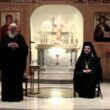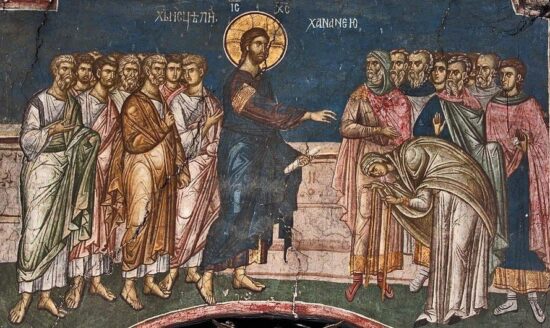The rich man in this Gospel proved to be an adherent of a religion that was too simple and comfortable, limited only to what is natural and accessible to everyone: “do not commit adultery, do not murder, do not steal, do not bear false witness, honor your father and mother.” However, that was exclusively a “human” or “humanistic” religion, as long as it only concerned relationships with fellow human beings. It was a prohibitive religion, focused on “what NOT to do,” which left the rich man feeling unfulfilled.
Fortunately, he became aware of his state. He felt that he practiced a too rudimentary religion. He sensed that the Lord had other expectations of him, and eager for perfection, he asked, “What (else) must I do to inherit eternal life?” Thus, the Lord reveals to him the path to perfection: renouncing wealth (self-denial), complete devotion, and perfect love.
“So…it is different, right?!
It is one thing not to deceive your life partner, and another to love them!
It is one thing not to kill, and another to serve your fellow beings!
It is one thing not to steal, and another to share your wealth with the poor!
It is one thing not to bear false witness, and another to give your life for your neighbor or even for the Lord!
I emphasize these points because, unfortunately, too few of us manage to go beyond the limits of simplistic, rudimentary, humanistic, and especially prohibitive Christianity – like the rich ruler – to practice a devoted and perfect Christianity that Christ expects from us.
Pay attention to the following parable:
A faithful woman came to her spiritual father and asked:
“Father, I have observed all the fasts according to the rules, I have maintained the honor of my marriage, I have never missed Church, and I have read the entire Scripture cover to cover. What else I need to do?”
The spiritual father said to her:
“Have you endured mockery as honor, loss as gain, was a stranger treated as a close relative to you, and lack as abundance?”
She replied:
“No!”
The father then said:
“Then you have not fasted enough, you have not led a truly honorable life, you have not attended Church with true benefit, and you have not read the Scripture sufficiently. Therefore, go and do good as Christ has taught us – perfectly.”
Understand, therefore, that neither the virtues nor the prohibitions of the Holy Law are ends in themselves, but only means or paths. Thus, if someone aims for true life in Christ, they must give themselves so completely and “perfectly” to the Lord that nothing and no one can hinder their service to Him.
† SEBASTIAN
Bishop of Slatina and Romanati”









